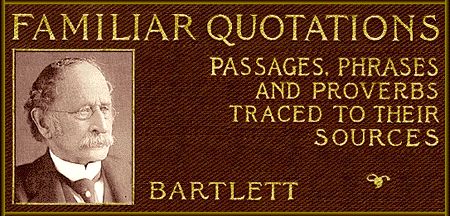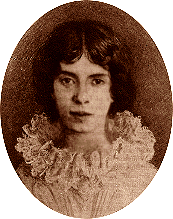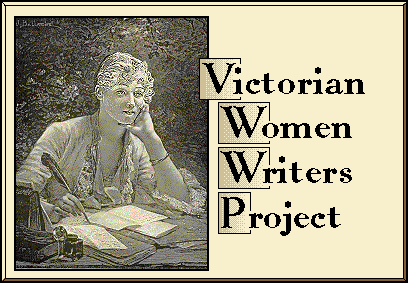 http://www.columbia.edu/acis/bartleby/bartlett/index.html:
An amazing site: find any famous original quotations from the classical
works of literature. A site you must visit.
http://www.columbia.edu/acis/bartleby/bartlett/index.html:
An amazing site: find any famous original quotations from the classical
works of literature. A site you must visit. General Description of the American Literature Course
The Crucible Final Exam Answer
The web links to the major American writers are categorized chronologically into nine periods (1600-present) in the history of America-Early America-1750 represented by John Smith, Anne Bradford, Edward Taylor, William Byrd, and Jonathan Edwards; Reason and Revolution (1750-1800) represented by Benjamin Franklin, Thomas Jefferson, Thomas Paine; Native Grounds(1800-1840) represented by Washington Irving, James Cooper, Edgar Allen Poe; New England Renaissance(1840-1855) represented by Ralph Waildo Emerson, Henry David Thoreau, Nathanial Hawthorne, Herman Melville, Henry Wadsworth Longfellow, and James Lowell ; Conflict and Celebration(1855-1880) represented by Robert Lee, Abraham Lincoln, Walt Whitman, Emily Dickinson, and Mark Twain; Regionalism , Realism and Naturalism(1880-1916) represented by Jack London, Stephen Crane, Henry James, Richard Wright; New Directions(1916-1930) represented by T.S.Eliot, William Carlos Williams, Lanston Hughes, E.E.Cumming, Sinclair Lewis, Robert Frost, Ernest Hemmingway, E.Scott Fitzgerald; Midcentury Voice(1930-1960) represented by W.H.Auden, Robert Lowell, John Steinbeck, Williams Faulkner, Carson McCuller, Tennessee Williams, Eugene O'Neill, ; Our Time(1960-present) represented by Arthur Miller, Elinor Wylie William Stafford, James Wright, James Baldwin, Alice Walker, and Toni Morrisson.
 http://www.columbia.edu/acis/bartleby/bartlett/index.html:
An amazing site: find any famous original quotations from the classical
works of literature. A site you must visit.
http://www.columbia.edu/acis/bartleby/bartlett/index.html:
An amazing site: find any famous original quotations from the classical
works of literature. A site you must visit.
Early America-1750
1. Puritanism (1620-1730s):
a. Knowledge: comes from grace, scripture,
typological history
b. World view is God directed
c. Social view: governmental
theocracy, mutual suspicion
d. Self Concept: self loathing, very self conscious
e. View of Nature: emblematic of God's purposes, the living work of God.
Earlier: fearful woods, Satan, Later: beauty
f. Representative Persons: Bradford/J.Edwards
John Smith: http://www.cnu.edu/library/libhome.html -the library of Capitan John Smith
Anne Bradford
Edward Taylor
William Byrd
Jonathan Edwards: http://home.navisoft.com/outreach/Edwards.html-the writing of Jonathan Edwards
Reason and Revolution
(1750-1800)2. Colonialism/Enlightenment (1740s-1820):
Benjamin Franklin's Autobiography
Thomas Jefferson: http://etext.virginia.edu/jefferson/quotations/jeff1520.htm-Jefferson on Politics and Government
Thomas Paine: http://www.mala.bc.ca/~mcneil/cit/citlcpaine.htm-Library of Congress Citations
Native Grounds
(1800-1840)
3. Romantic Period (1820-1860/65)
Critique of Slavery--some common elements of slave narratives [1820-1865] Jacobs, Douglass
Elements of Transcendentalism:
Transcendental Doctrines:
Transcendental Doctrines:
Philosophy and Tone of Transcendental writings:
Philosophy and Tone of Transcendental writings:
Homework#1 How are the transcendental doctrines still reflected in our society and our life?
Homework #2 What are your attitudes toward how these doctriines are still affecting our lives?
Southwestern Humor [1830s-1880s]:
Local Color/Regionalism [1870-1910]:
Realism [1865-1910] -- Twain, Howells, James, Wharton
Naturalism [1880-1900] -- Crane, London
Naturalism [1880-1900] -- Crane, London
Early 20th Century Awareness
Harlem Renaissance
Postwar Consciousness
Washington Irving:
James Cooper: http://www.uwm.edu/Dept/Library/special/exhibits/clastext/clspg134.htm-the classic text of James Cooper
Edgar Allen Poe: 
New England Renaissance(1840-1855)
Romanticism [1830-1865] Hawthorne, Poe, Thoreau, Melville, Whitman, Dickinson
Ralph Waldo Emerson: works, essays, quotes, poems, biography, and other related materials: http://miso.wwa.com/~jej/1emerson.html
Henry David Thoreau: essays, quotes, poems, biography, and other related materials http://miso.wwa.com/~jej/1thorea.html
Nathanial Hawthorne: 19th century literature-
Herman Melville: 19th century literature-a collection of his most famous books, such as, Moby Dick, Billy Bud,etc.
http://history.hanover.edu/19th/literatu.htm
Henry Wadsworth Longfellow:
The Biography of Longfellow: http://okemos.k12.mi.us/~henry/text/longfeba.html
Conflict and Celebration
(1855-1880)Robert Lee
Walt Whitman
Emily Dickinson
: http://www.columbia.edu/acis/bartleby/dickinson/:
Complete Poetical Works by Emily Dickinson
http://www.columbia.edu/acis/bartleby/dickinson/:
Complete Poetical Works by Emily Dickinson
Mark Twain:
Regionalism ,Realism and Naturalism
(1880-1916)Jack London-
http://www.loc.gov/nls/reference/london.html
Stephen Crane:
A COLLECTION OF HIS MAJOR WORKS
- http://www.lib.udel.edu/ud/spec/exhibits/treasures/american/amer.htmlHenry James: the Henry James scholar's Guide to Web Sites- http://www.newpaltz.edu/~hathaway/
(The Harlem Renaissance, 1890-1848)
Claude Mckey
Langston Hughes
New Directions(1916-1930)
Imagism
T.S.Eliot (modern poetry):
A collection of his works - http://www.helsinki.fi/kasv/nokol/reading.htmlE.E.Cumming(poetry)
Sinclair Lewis: Babbitt(fiction)
Ernest Hemingway:
Upton Sinclair:The Jungle
E.Scott Fitzgerald
Midcentury Voice(1930-1960)
W.H.Auden
Robert Lowell:
http://english.cla.umn.edu/Courseweb/1017/PoetryWallJohn Steinbeck
Williams Faulkner: a collection of his novels
http://www.lib.udel.edu/ud/spec/exhibits/treasures/american/amer.htmlCarson McCuller
Tennessee Williams: a collection his plays http://www.lib.udel.edu/ud/spec/exhibits/treasures/american/amer.html
Eugene O'Neill
Richard Wright
Our Time
(1960-present)Arthur Miller:
Links to Arthur Miller's Works
Elinor Wylie
William Stafford
James Wright
James Baldwin,
Alice Walker
: http://www.luminarium.org/contemporary/alicew/ http://www.library.csi.cuny.edu/dept/history/lavender/walker.html:
The Study of Women's Writing Links
http://www.library.csi.cuny.edu/dept/history/lavender/walker.html:
The Study of Women's Writing Links
Toni Morrison.
(The above-information is cited from http://www.millikin.edu/aci/crow/basics/amlitintro.html)
You are required to write a book report for this class and it's due on Nov. 2, 2004.
Career Day 12/09/05 Guest Speaker Information
Peter Inguanta DTCC The Depository Trust and Clearing Corporation Pinguanta@dtcc.com
Michelle Lee & Laura DiGiovanni Junior Achievement of New York, INC. 205 East 42nd Street, Suite 203
New York, NY 10017-5706
Phone 212-907-0022 Fax 212-949-5262
mlee@jany.org ldigiovanni@jany.org
| Quiz based on Act III of The
Crucible Answer the following questions?
|
| Mid Term Review :
Task 1 Scoring |
Task 3 Scoring | Regents Review:| Task I& II (Friday)| Scoring | Dictation | Task III & IV(Thursday) | Scoring | Conversion Chart | |
Book Report
|
Composition: Think carefully about the following statement. Then read the assignment below it and plan and write your essay as directed.“Crisis, it said, does not so much build character as reveal it".Assignment: Do you agree with this statement? Plan and write an essay in which you develop your position on this issue. Support your point of view with reasoning and examples taken from your reading, studies, experience, or observations. |
Class Name: American Lit
Class Name: E5 Pd 1 & 2 Fall '05Your Class Key: 5Z40Z03E2 |
Class Name: E5 Pd 7 Fall '05Your Class Key: 5Z40Z08E80 |
|
Classroom Rules |
|
| 1. Attendance, Lateness(20%) | 1. All school rules apply to this room. |
| 2. Class/Group Participation(20%) | 2. Follow the IAUP( Internet Acceptable Usage Policy) |
| 3. Homework & class assignments, projects, performances, book reports, journals etc. quizzes and tests(50%) | 3. Don't write on the desk and the computer. |
| 4. Respect and help each other. | |
| 5. Remember you are here to learn and be rewarded by your learning not to be punished. | |
| 4. Respect and help each other. No one knows who you are until you demonstrate yourself. |
Test One Based on Act I, The Crucible
Part I. Dictation of new vocabulary words
Part II. Short-Answer Questions
Any of the five words from the list
Betty revealed that Abigail drank blood- she drank a charm to kill John Proctor's wife.
The conflict between the Nurses and the Putmans is originated from
John Proctor is the protagonist in this play. He is a man in his thirties who seems not to be like the other men in his town. He has a had a brief secret history with Abigail and has made it his duty to stop this ludicrous witch hunt which has his wife also mixed up within it. Proctor serves as a guiding light of hope for good amongst these evils. His strong demeanor and popularity amongst many makes him a target of reverend Paris who he openly shows his discontent for.
Thomas Putnam is one of the wealthiest men in Salem. His greed which stems from his wealth has made him one of the main driving forces behind this witch hunt. His ulterior motives leads to the condemning of many innocent people. He has let his own person problems supersede not only his own but the moral beliefs of the susceptible people who are backing him. He seems to always find himself in the middle of a discussion injecting his opinions and ideas for his benefit.
Mrs. Putnam the wife of Thomas Putnam, is depicted as a bitter woman due to the loss of her seven children. With this current witch hunt taking place Mrs. Putnam ceases the opportunity to make accusations against her family rivals the Nurses. Mrs. Nurse served as the midwife of all of Putnam's deceased children, because her children died shortly after birth Mrs. Putnam believed that Mrs. Nurse had something to do with it. This accusation aids as evidence to her husbands already existing claims which stems from land disputes.
Francis Nurse is the head of one of Salem's most affluent families. His family and the Putnam's family has had an on going rivalry for many years. This rivalry has put his wife amongst the dozens of accused during this witch hunt.
Rebecca Nurse is the wife of Francis Nurse. Mrs. Nurse is kind elderly woman whom is widely cared for and respected by the townspeople. Mrs. Nurse has acted as the midwife of Mrs. Putnam's seven children who all have perished shortly after. This continuous pain has created a hatred in Mrs. Putnam towards Mrs. Nurse. This hatred has driven Mrs. Putnam to the extreme measures of identifying Mrs. Nurse as one of the many witches that reside in Salem.
Giles Corey serves as the comical relief character within this play he seems to always find himself in trouble or amidst a conversation where he interjects smart-alecky comments. Corey has a habit of speaking without fully thinking the content through, this habit ads his wife to the list of the accused
Abigail Williams is the leading force behind the witch hunt. She is the niece of Paris who seems to be singled out by many of the other towns women due to he behavior. Abigail a teenage girl who had a brief affair with John Proctor cannot seem to fathom the fact that John is not willing to leave his wife for her and she becomes spiteful. When seeing she has an opportunity to seek revenge on those who she believes have done her wrong she uses the then obscure suggestions of their being witches involved in the mysterious illness of her cousin Betty to strike. Abigail serves as the leader of these victims who claim to be possessed as they pick
The major conflict in the Act took place between Abigail and John Proctor in the act. As we could see the witch-hunt crisis was started by Abigail who wanted to protect herself of getting accuse of. After Proctor came to the house, he was alone in the room with Abigail. Proctor wanted to end the adultery between him and Abigail, his conscience’s telling him that he should quit. After spending eight months to avoid being together with Abigail, things still didn’t go in the way he wanted to, Abigail wont’ let him. If the conflict between Proctor and Abigail didn’t started, or Proctor’s wife Elizabeth didn’t found out her husband was having an affair with Abigail, there won’t be that many innocents who were being accused of practicing witchcraft or maybe the Salem Witch-Hunt wont’ even exist.
The setting, conflicts and characterization of the main characters